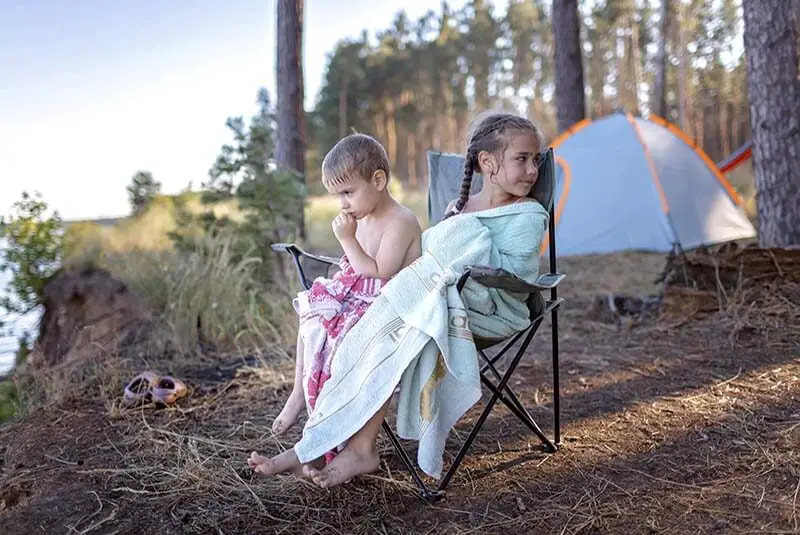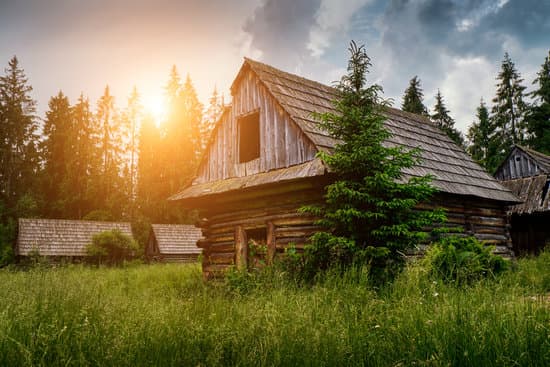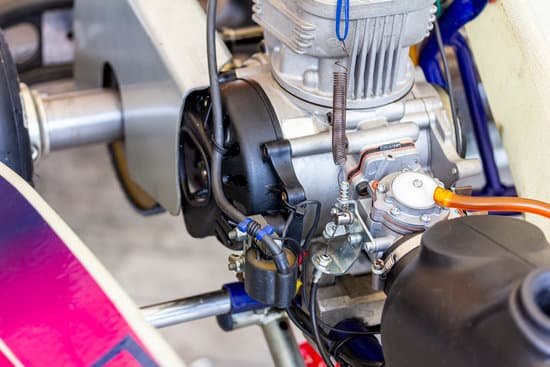7 Tips How to Stay Safe on a Camping Trip
A camping trip can be a dreamy escape from today’s connected world. Instead of messing with technology, you can engage in more human pursuits, like gathering wood for a blazing fire. How else are you going to toast s’mores?
However, there’s a good reason why most humans choose the comforts of civilization, at least most of the time. You must learn to depend on your wits in the wild, as dangers lurk everywhere and help usually isn’t near. While it may sound dramatic, a single mistake can have tragic consequences, causing severe illness or disability.
The National Park Service estimates between 120 and 150 people a year lose their lives in the wilderness.
Therefore, you should know what to expect and come prepared, especially if you head into the wild solo. How should you get ready for your excursion and what should you know before you go? Here’s how to stay safe on a camping trip.
Attend to Your Hygiene
If you haven’t read Ernest Hemingway’s “The Snows of Kilimanjaro,” here’s the super-quick Cliff Notes version — an unprepared explorer dies of a minor wound in the African wilds, all because he forgot to bring peroxide. The tale illustrates the importance of attending to hygiene to stay safe on a camping trip, even if you skipped most of English Literature 101.
Hygiene isn’t a tiny thing. It’s one factor folks considering van life to escape oppressive living costs have to weigh heavily before they leap. Looking for a bathroom at 3 a.m. gets old quickly, as does having to find one to wash your hands before you eat.
If you think such details don’t matter in the wild — who cares if you behave without table manners — think again. Chowing down on that hot dog with filthy fingers may not seem like a big deal until you come down with a case of food poisoning. Ignore the ignominy of dropping your drawers in the bushes when you have the runs, as it’s the least of your worries.
Diarrhea and vomiting can dehydrate you quickly, which can turn deadly within days, even hours.
Furthermore, you have to keep your clothes clean if you plan to stay safe on an extended camping trip. Trench foot is no joke and can result in gangrene if you don’t get that raw skin covered with clean fabric. You probably don’t run much risk from a dirty coat, but the layers closer to your skin can become contaminated with bacteria and cause infections.
Here are some quick and dirty hygiene tips for staying safe and clean on a camping trip:
- Pack extra water: And soap. You need it to wash your hands.
- Carry sanitizer: Hand sanitizer isn’t quite as good as a thorough scrub, but it’s much better than nothing in a pinch. Make sure you rub it in until fully absorbed, which takes about 20 seconds.
- Wash before you eat: Do so before you prepare your food if what you consume doesn’t come straight from the package.
- Wash throughout the day: Who can forget the COVID-19 instruction to avoid touching your face? Realistically, you’ll probably pick your nose, rub your lips or flick a speck of dust out of your eye at some point, so keep your hands reasonably clean by washing them and applying sanitizer throughout your trip. Follow with lotion if you tend to get dry.
Protect Yourself From the Elements
Few things in life are cozier than a campfire. However, there’s a reason the ability to build one was critical to early human survival. Even the hairiest homo sapiens lack a whole body’s worth of fur and sufficient fat to withstand temperature extremes like a grizzly. Cold and extreme heat can kill.
First, consider your shelter. If you have a van or RV, you’re in luck. Although interior temperatures can drop precipitously, you have adequate cover from rain and wind.
The biggest hurdle a vehicle camper faces is how to heat their shelter without running their engine or exposing themselves to toxic fumes. You have several options, depending on your vehicle type.
1. Portable Heaters
Portable heaters come in various types. If your camping excursions generally land you at places like KOAs with hookups, you might get away with a traditional space heater as long as you follow the same safety rules you would at home. Otherwise, you might need a generator for power.
Some portable heaters run on propane. These models come in handy if you’re the off-grid sort who likes to get away from the crowds, perhaps escaping to lands with no services. You won’t need electricity, but keep in mind that you will need to ventilate as some can produce carbon monoxide fumes.
[amazon box=”B074MX8VN5″]
2. Generators
The right generator gives you the power to run your heater at a comfortable temperature all night. It also fuels your AC, so you can kick back in cool style like the luxurious glamping maven you are. Depending on your comfort level, you can find versions that run on propane, gasoline or both. Gas generators release more of an odor, but carbon monoxide can cause trouble without warning.
Always operate such devices at a safe distance from your vehicle. Do you want to be more eco-friendly? While they cost more initially, solar generators give you the authentic off-grid experience by reducing or eliminating your need for alternatives.
You might need quite a few panels, depending on the size of your ride. However, these devices offer the advantages of being eco-friendly and silent — gas and propane-powered numbers emit a distinctive rattling hum.
[amazon bestseller=”portable generators” items=”1″]
[amazon box=”B08P2Q83BY”]
3. Mini Wood Stoves
Although it might sound dangerous, mini wood stoves are a romantic and convenient van and RV heating alternative. You have to worry about fumes, but you shouldn’t have problems if you vent your device to the outside. Another bonus is that you can cook on the top — fried eggs for breakfast, anyone?
[amazon bestseller=”wood stoves” items=”1″]
4. Diesel Van Heaters
Diesel heaters run off your van’s fuel line. Although you’ll have to keep an eye on your supply, you might not need to lug around extra cans for a short trip. These vent to the outside, but it’s wise to install a carbon monoxide detector in your ride, no matter what type of heater you select.
[amazon box=”B0BKTX95JN”]
Tent Camping
What if you like it rough and prefer to tent-camp? You might have a harder time staying warm and safe in such cases. However, your love of the rugged lifestyle could save you a bit of cash.
The smaller your tent space, the less you have to heat — so look for one that’s as little as possible for your needs. Many single-person models resemble oversized sleeping bags by design.
It’s also wise to learn how to bank your fire for the night so you don’t have to start from scratch in the morning. While it’s tempting to cozy up close to the flames, it’s also dangerous, as sparks could ignite you during the night. Look for flame-retardant sleeping bags and tents and keep a sensible distance.
[amazon box=”B074MX8VN5″]
Know How to Handle a Health Emergency
A health emergency can threaten your safety while camping. Are you planning an extended trek? It might be wise to schedule a checkup with your doctor first if it’s been a while.
After getting a clean bill of health, you’ll enjoy better peace of mind and your physician can alert you to underlying conditions you should manage in the wild. If you take any prescriptions, use this visit to ask for a 2-week travel dose you can keep in your go-bag to have the meds you need on the road.
You should always carry a well-stocked first aid kit that also contains the following:
- Multiple shapes and sizes of adhesive bandages
- Various sterile gauze pads in different shapes and sizes
- One large triangular bandage for making slings
- Medical tape
- Moleskin for blisters
- Eye patches
- Triple antibiotic ointment
- An antiseptic cleansing solution, like the peroxide the hapless protagonist of “The Snows of Kilimanjaro” forgot
- Hydrocortisone cream
- Calamine lotion
- Aloe vera gel
- OTC pain relievers
- OTC anti-nausea and anti-diarrheal medicines — remember, these conditions can turn deadly in the wild
- Hot and cold packs
- PPE, including a barrier for performing CPR and gloves for treating wounds
- Scissors and tweezers
- A splint
- An irrigation device for rinsing objects stuck in your eye.
- First aid manual or app — if going electronic, ensure the app you chose doesn’t require internet service to work
[amazon bestseller=”first aid kit” items=”2″]
It’s as critical to know what to do in an emergency as it is to have the right stuff. If camping is one of your favorite pastimes, you should consider taking a basic CPR and first aid certification course. Refresh your knowledge every other year or so — some employers may include this benefit if you work with at-risk populations or in a hazardous role like a factory worker. You’ll feel far more confident in your ability to tackle any health issues that arise.
Carry the Right Supplies
First aid is only one of the supplies you’ll need to take to stay safe on a camping trip. You might not carry your most vital asset with you — it’s your itinerary. You should always let someone back home know where you plan to go and how long you intend to stay there. While it may sound romantic to take off into the wild and rely on the kindness of strangers like Christopher McCandless, please remember that his story did not have a happy ending. People need to know where to send help if you don’t report back on time.
What will you need for an enjoyable trek? Here’s a short list.
1. Water
Water is more essential than food. You can’t survive for more than a day or two without it or bank on finding a stream in some terrain. A good general rule of thumb is two liters per person per day, although you may want more for washing if in a hot climate.
2. Food
Even the most intrepid foragers do better with a stash. Here are some great trail snacks that will keep you fed and healthy:
- Trail mix
- Fresh, whole fruits like apples and bananas
- Granola or energy bars
- Nuts and seeds or nut butters
- Dried fruits and vegetables
- Tuna in individual packets
- Ready-to-eat cereal
[amazon bestseller=”camping food” items=”2″]
3. Clothing
Remember that bit about hygiene? Bring plenty of extra socks and clean underwear, especially if you plan on backpacking for a while. You should always take at least one spare pair, even for a single overnight trek. You never know when you might step in a puddle.
Also, you should layer your clothing for maximum protection against the elements:
- First layer: Should wick sweat away, so forget the cotton long johns in favor of synthetic blends designed for this purpose.
- Second layer: Should insulate you, so think thick wool, flannel or fleece. Some people add a bonus vest to protect their vital organs further.
- Third layer: Should break the wind and keep the rain off you. It should be as weather-proof as possible while adding little weight that bogs you down.
4. Footwear
The right shoes are essential. Make sure you can hike for miles without blisters or painful, cramped toes — you may have to go into men’s sizes if you’re female. Also, consider your terrain. Desert hikers might do best with lightweight, breathable materials, whereas those who trek through the swamp need waders to protect their feet from water.
[amazon bestseller=”camping shoes” items=”2″]
Prepare for Personal Defense
Here’s a question that arises a lot, especially if you’re a female who camps solo. Should you carry a firearm? Ultimately, only you can answer that question, but weigh multiple factors besides your desire for a big gun to make you feel safe.
A gun offers superior protection against predators — most people would feel more comfortable facing a grizzly with a 12-gauge than a can of bear spray. However, you must consider your temperament and the most dangerous predator of all, who walks on two legs. You might be one of many who would — rightfully — hesitate to use deadly force, but doing so gives an attacker time to strike and even turn your weapon against you.
Therefore, think long and hard about what you’d be willing to do in a pinch. A can of bear spray can put a mere human in a world of powerful hurt, but it won’t kill them. You might hesitate less about firing away.
Plus, you didn’t really want a bearskin rug, did you? You own far better bragging rights if you and any beasts you encounter both walk away unscathed. Instead of arming yourself to the teeth, consider learning best practices for visiting bear country and keeping your distance.
[amazon bestseller=”personal defense” items=”2″]
Stay Safe on Your Next Camping Trip
Camping can be the ultimate adventure and millions of people enjoy this style of vacation every year. However, it’s not without danger.
Heed these tips to stay safe on your next camping trip. Instead of returning home aching and weary, you’ll have a weekend or more of happy memories that make you look forward to your next wilderness trek.






